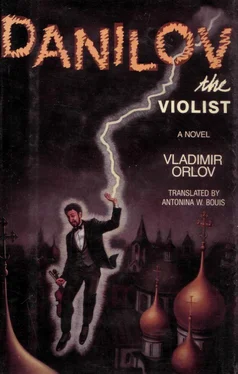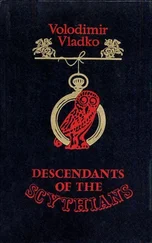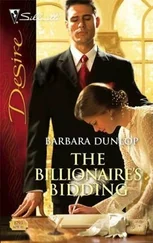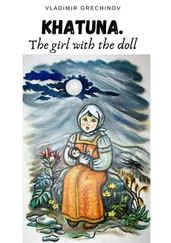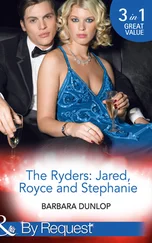Here the door opened and two young ladies came in. The crystal arrow of Fate silently and deliriously pierced Danilov's left side.
"Here, Volodya, I want to introduce you to someone!" Melekhin said happily. "This is Ekaterina Ivanovna Kovalev-skaya, the activist on our panel. I'm off..."
Danilov already knew Ekaterina Ivanovna. She was a friend of the Muravlyovs and also the woman who, without knowing it, had burst into the life of house spirit Ivan Afanasyevich. Ekaterina Ivanovna was glad to see Danilov, but he noted an unusual hint of sorrow in her eyes.
"And this, Volodya, is a friend from work," Ekaterina Ivanovna said. "Her name is Natasha."
"Volodya," she said and offered Danilov her hand. The touch of Natasha's skin burned him. It was as if he were a high-school student on his first date.
Natasha's eyes were gray and deep. She looked at Danilov with amazement and trembling. Danilov wanted to say something bright and clever, as he usually did to women, but instead he spoke shyly and even harshly:
"You'll excuse me, I'm seeing this music for the first time, and I should read it through..."
"All right, all right," Ekaterina Ivanovna said. "We won't bother you."
Natasha said nothing, she merely looked at Danilov, and his heart pounded. "What's the matter with me?" he thought. "Why am I so nervous and upset? Could this woman with gorgeous gray eyes appear -- and change everything in my life? ... Other people have magical moments, why shouldn't I experience one, too? ... She hasn't said a word. I don't know a thing about her. But she came in and I feel lightheaded, and solemn, and sad, as if I were way up high somewhere..."
However, the music couldn't wait. Danilov forced himself to open it, and he was dumbfounded. He grabbed his instrument and ran into the main dressing room. There was Melekhin, with no chance to escape.
"Sergei Mikhailovich, what is this?" Danilov cried.
"What? Where?" Melekhin was sincerely surprised.
"This! The music!"
"It's music, Volodya!"
"I can see that it's music!" shouted Danilov. "But these pieces aren't written for the viola, they're for the violin! What kind of a fool do you think I am?"
"Easy, easy, Volodya," whispered Melekhin. "It's my fault. But it's more the fault of that shit, Misha Korenev. He promised me a week ago, and this morning he sends some stupid letter: He can't!"
"And I can't either," Danilov said. "I have a viola, not a violin."
"You can, Volodya, you can do anything, I'll pay you an extra twenty rubles. Just play a fifth higher. The people in the audience won't know the difference if you're playing on a viola, a violin, or a fireplug..."
"As a musician," Danilov said, "I'm offended and disgusted by what you say. I'm leaving immediately."
"No, no, maybe I didn't express myself correctly, I'm an outspoken person, forgive me, but you can't leave. Can't you, a violist, easily play whatever's written for some crummy violin?"
And then Danilov saw Natasha again. She and Ekaterina Ivanovna were looking into the dressing room. Natasha's eyes met Danilov's. She blushed, and smiled at him. And Danilov realized that he had run out angrily not only to chew out Melekhin and make a scene, but also to see Natasha one more time or at least know that she was nearby. He also realized that now he would play on his viola any music at all, whether it was written for the violin, the trombone, or even the snare drum.
"Well, all right," Danilov said. "But this is the last time I'll put up with your tricks."
"You're such an intelligent man, Volodya!" Sergei Mi-khailovich said with admiration.
Danilov returned to the room allocated to him and thought, "Really, why shouldn't I be able to play a violin part?" He reproached himself for cowardice. He shouldn't have made a scene in the first place -- his instrument was good, and his own dreams of music had already taken the viola to heights that no violin, even one from the hands of Stradivarius himself, could ever reach. So now that the opportunity was at hand, why hold back? Fearlessness was never out of place! Forty minutes later, Danilov came out happy, in a good mood, and even a little reckless. The panel was beginning.
The important personages, scholarly and verbose, had taken their places around the table on the stage. Danilov settled down on a chair backstage and waited for his moment. Nearby, quietly playing cards, were six electric-guitar players, rings flashing, lace cuffs wiping dust from the club's requisitioned furniture. These loud young guys had at first scorned, or maybe even felt sorry for Danilov the way limo drivers pity a rain-soaked coachman on the box of a dray cart. But then they got a look at his instrument wrapped in cashmere and they grew quiet and morose.
First to speak on the panel was Kudasov. He stood so that he could see both the audience and Danilov, just in case he had to prevent Danilov from sneaking off to the dinner without him. Then from the other side of Moscow came chocolate-makers who presented their new candies named Wolves and Sheep, created specially for the centennial celebration of the playwright Ostrovsky. The candies were passed around to the panel members for tasting. While the audience waited, totally mesmerized, and accompanied by a drum roll that would have been more appropriate to a death-defying stunt at the circus, the panel members chewed the candy, grew animated, and praised the chocolatemakers, while the gray and red wrappers were circulated among the audience to familiarize them with the product. Finishing up his candy, Boris Chashcharin, international target shooting champion just back from Uruguay, rose from the table and approached the lectern, rifle in hand. He said that he found speaking difficult because his business was shooting, not speaking. But he attempted a joke: he regretted that the audience had not brought along dishes, for if they had, they could toss them in the air and enable him to prove he was a class act. Suddenly a marvelous porcelain plate from a Meissen service arose above the audience, flew over the first few rows toward the stage, and froze some ten feet directly above Chashcharin. Chashcharin wildly ogled the plate, aimed his rifle, and shot. The bullet struck, but the plate did not shatter. It merely swayed in the air, as if dancing a minuet, and descended five feet. Chashcharin shot again, but once again the bullet did nothing more than make the plate spin and shimmer in the twinkling stage lights.
"Enough now!" scolded Danilov. "How childish can you get?" He sent the plate back to the secondhand shop on The Arbat* and pushed the link on his bracelet back to E. "What a joker!" Danilov couldn't get over his own behavior. "A silly child... Why? I did it because of Natasha!" Danilov suddenly realized. "That's why I feel like a kid again -- because Natasha's here."
The embarrassed sharpshooter was saying that the climate in Uruguay was different from Moscow's, and that he hadn't yet readjusted to Moscow's atmospheric pressure. That's why he wasn't really up to par. He sat down, and in his place rose a thin, agile man with sateen cuff protectors. An accountant by the look of him, he was, in reality, the builder of the computer software that wrote music. His name was Leshchov. He said that his computer program, by creating variations on one or another musical theme and even orchestrating it in the manner of a given composer, was prepared to write complex compositions of ten to fifteen minutes' duration, not to mention lyric and civic songs. When we learn to manufacture better silicon chips the machine will be able to compose ballets, symphonies, and if given a text, operas. Say, if the need ever arose, you could program an algebra textbook for the sixth grade into the machine and get a school opera.
"And now we will ask Comrade Vladimir Alekseyevich Danilov, soloist with the theater orchestra, to play sixteen pieces on the violin, eight by the computer, and eight by people with conservatory educations," Leshchov said. "And let's have the esteemed audience and scholars decide which was written by computer, and which by humans. And then let us think about the future of music..."
Читать дальше
